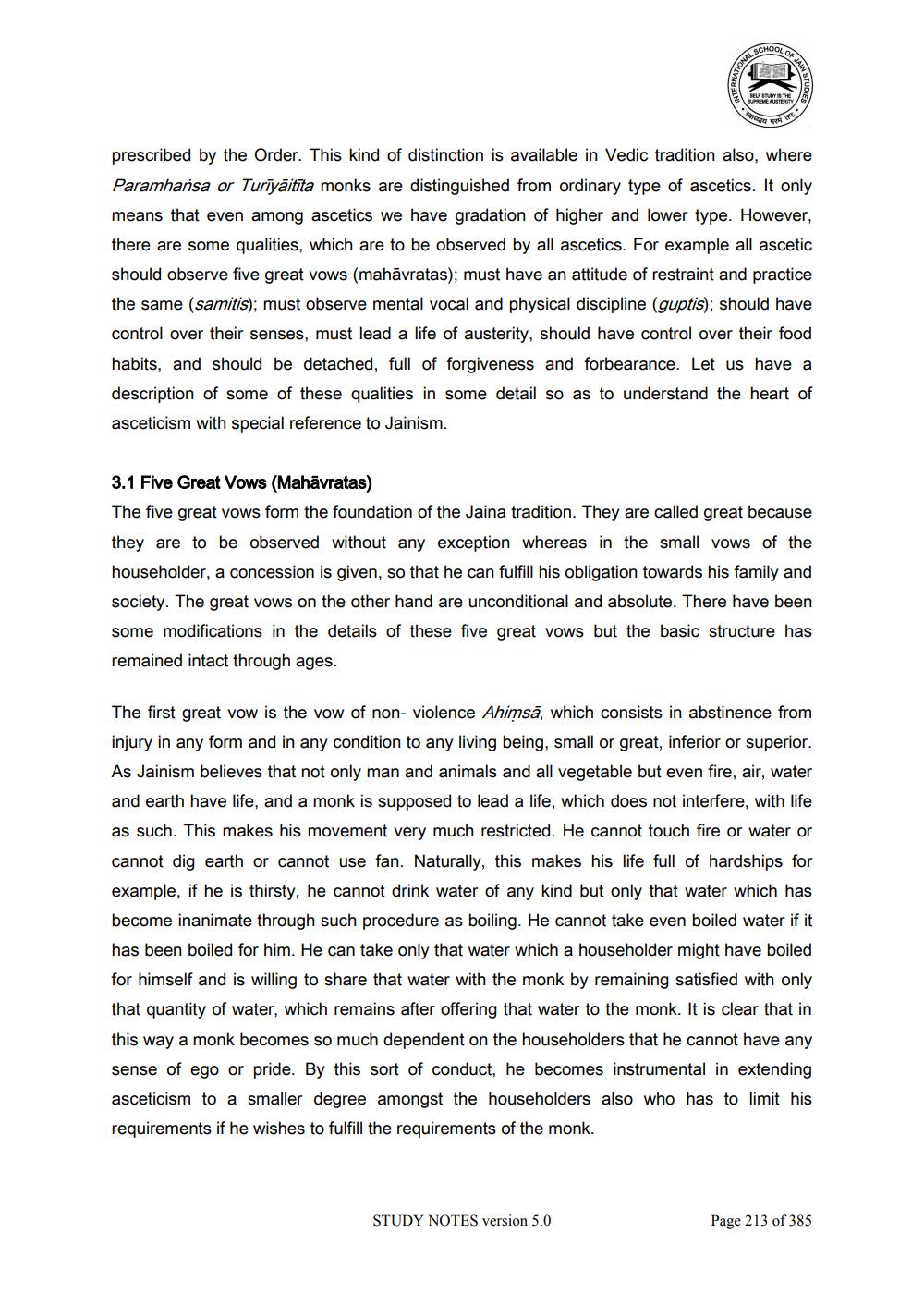________________
INTERNATIO
SCHOOL
OF
STUDY NOTES version 5.0
KI
SELF STUDY IS THE SUPREME AUSTERITY
Farenga
•
STUDIES
prescribed by the Order. This kind of distinction is available in Vedic tradition also, where Paramhansa or Turiyāitīta monks are distinguished from ordinary type of ascetics. It only means that even among ascetics we have gradation of higher and lower type. However, there are some qualities, which are to be observed by all ascetics. For example all ascetic should observe five great vows (mahāvratas); must have an attitude of restraint and practice the same (samitis); must observe mental vocal and physical discipline (guptis); should have control over their senses, must lead a life of austerity, should have control over their food habits, and should be detached, full of forgiveness and forbearance. Let us have a description of some of these qualities in some detail so as to understand the heart of asceticism with special reference to Jainism.
3.1 Five Great Vows (Mahävratas)
The five great vows form the foundation of the Jaina tradition. They are called great because they are to be observed without any exception whereas in the small vows of the householder, a concession is given, so that he can fulfill his obligation towards his family and society. The great vows on the other hand are unconditional and absolute. There have been some modifications in the details of these five great vows but the basic structure has remained intact through ages.
The first great vow is the vow of non- violence Ahimsa, which consists in abstinence from injury in any form and in any condition to any living being, small or great, inferior or superior. As Jainism believes that not only man and animals and all vegetable but even fire, air, water and earth have life, and a monk is supposed to lead a life, which does not interfere, with life as such. This makes his movement very much restricted. He cannot touch fire or water or cannot dig earth or cannot use fan. Naturally, this makes his life full of hardships for example, if he is thirsty, he cannot drink water of any kind but only that water which has become inanimate through such procedure as boiling. He cannot take even boiled water if it has been boiled for him. He can take only that water which a householder might have boiled for himself and is willing to share that water with the monk by remaining satisfied with only that quantity of water, which remains after offering that water to the monk. It is clear that in this way a monk becomes so much dependent on the householders that he cannot have any sense of ego or pride. By this sort of conduct, he becomes instrumental in extending asceticism to a smaller degree amongst the householders also who has to limit his requirements if he wishes to fulfill the requirements of the monk.
Page 213 of 385




